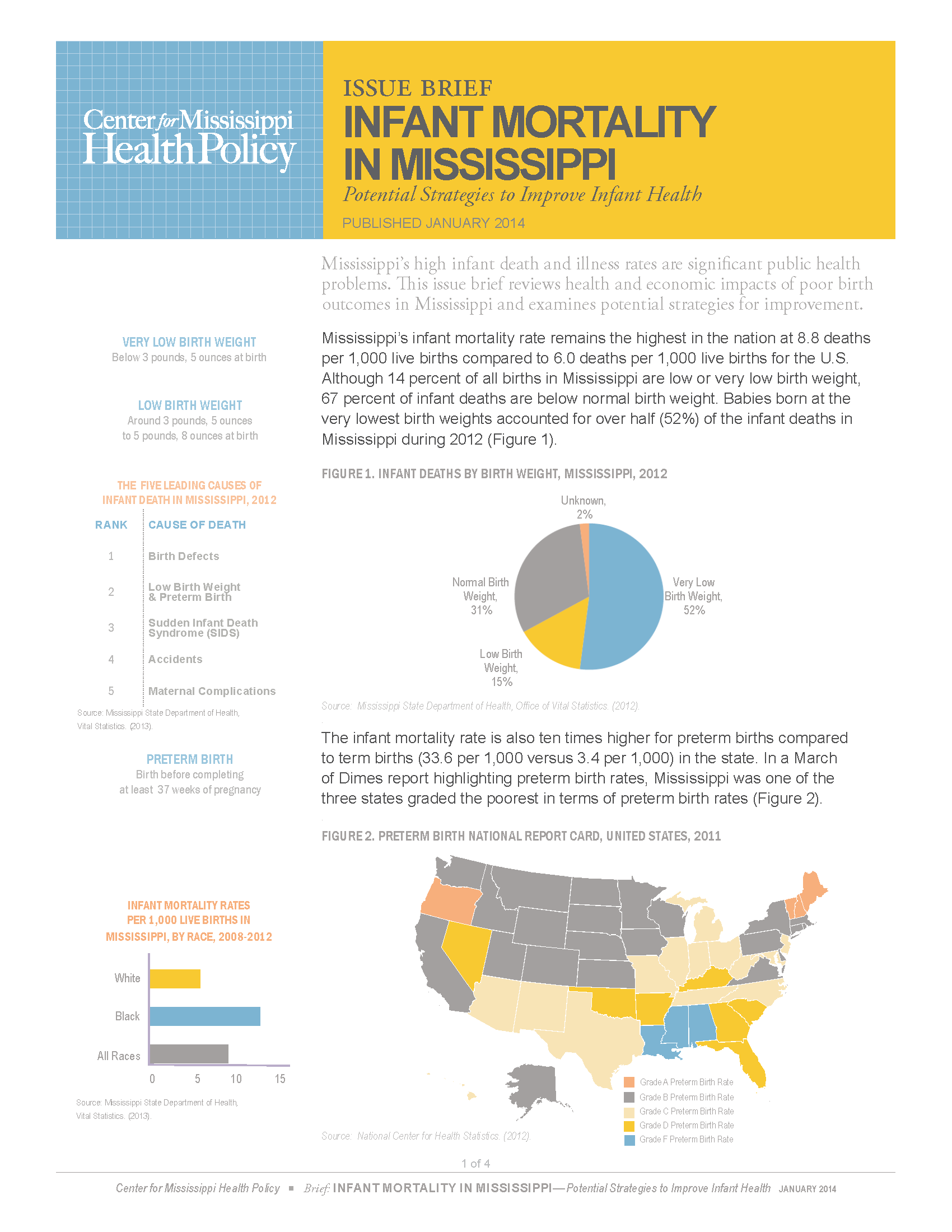Infant Mortality in Mississippi: Potential Strategies to Improve Infant Health
Wednesday, January 22nd, 2014

Infant Mortality in Mississippi
Infant mortality continues to be a significant public health problem in Mississippi. Infant death rates in the state remain the highest in the U.S., despite recent declines in the state’s rate to a low of 8.8 deaths per 1,000 live births.
The Center for Mississippi Health Policy partnered with the Mississippi State Department of Health to analyze the available data on infant mortality and other poor birth outcomes and estimate the associated economic costs to the state. Key findings and potential strategies to prevent infant deaths and improve infant health are outlined in an Issue Brief published by the Center and summarized below.
KEY Findings
- Birth defects, low birth weight, preterm birth, sudden infant death syndrome, accidents (including suffocation), and maternal complications are the leading causes of infant mortality in Mississippi
- Although 14 percent of all births in Mississippi are low or very low birth weight, 67 percent of infant deaths are below normal birth weight
- The infant death rate for preterm births is ten times higher than for births at full term
- Medical care costs associated with premature births are estimated to cost $241 million annually in Mississippi, most of which (85%) are incurred during the first few weeks of life
- Underdeveloped babies are not only at higher risk for infant death, but also for developmental problems—which can require early intervention and special education services. These support services are estimated to cost $22 million annually in Mississippi
- Poor birth outcomes are driven by several risk factors which are amenable to preventive efforts:
- Poor health status of the mother before pregnancy
- Tobacco use during pregnancy
- High rates of early elective deliveries
- High risk births in hospitals with an inappropriate level of care
- Sleep-related deaths
Potential Strategies for Improvement
A multi-state public/private partnership, the Collaborative Improvement & Innovation Network (CoIIN) to Reduce Infant Mortality, has examined the available evidence, and identified priority areas for states to focus their infant mortality reduction efforts. The following are five potential strategies recommended by this group, along with a sixth initiative targeting Mississippi’s very high prematurity rate:
- Provide women access to interconception health care to address poor health status before pregnancy
- Educate pregnant women about smoking cessation to reduce tobacco use in pregnancy
- Set policies to delay elective deliveries until at least 39 weeks of pregnancy.
- Implement an organized system of hospital care to ensure high risk pregnant women and babies are cared for in facilities designed to handle their complex health care needs
- Ensure early and consistent access to the drug 17-alpha-hydroxyprogesterone caproate (17-P) proven to prevent preterm births in the highest risk women
Download the Issue Brief for more information.
More information can be found in the issue brief, which can be downloaded HERE. Printed copies of the issue brief are available by contacting the Center for Mississippi Health Policy at 601-709-2133 or by email at info@mshealthpolicy.com.

